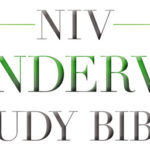Posted: 2/06/04
LifeWay Family Bible Series for Feb. 15
Reaping rewards from a focused Bible study
Joshua 1:6-9; Psalm 1:1-6; 2 Timothy 2:14-16
By David Jenkins
New Hope Baptist Church, Big Sandy
As a pastor, I have discovered people read the Bible for different reasons. Some read it out of a sense of duty. They quickly skim through a prescribed portion of Scripture, hardly realizing, much less understanding, what they have read. Others search the Scriptures when they want to prove a point or win an argument. Still others see the Bible primarily as a book containing great literature and will even commit portions of it to memory.
Those who truly are disciples of Christ view the Bible as the word of God, a body of holy Scripture to be read, meditated upon, digested and applied to their daily living. They cherish God's word as a medium of constant communication with their heavenly Father.
How to be an effective leader (Joshua 1:6-9)
Joshua was about to assume the most taxing challenge of his life. He would lead the Israelites, God's chosen people, into Canaan–the land God had promised them through Abraham. Furthermore, Moses, who had led that unwieldy mass of people from Egypt to the entrance to Canaan, was dead.
Moses had been Joshua's mentor and God's representative before the people. How could he ever gain the authority Moses had with the people? God was aware of Joshua's anxiety and fear, and he moved quickly to allay that fear with some of the most encouraging promises of support any new leader could hope to receive. Three times in the course of his instructions to Joshua, God said, “be strong and courageous” (1:6-7, 9).
But how was Joshua to “be strong and courageous” to perform the task before him? He was to obey God's law that Moses had delivered to him and to the people, and he was to “meditate on it day and night” (v. 8). The Hebrew word translated “meditate” actually means “mutter.”
 |
In an Orthodox Jewish synagogue, one will often hear a low, continuous murmur as the worshippers repeat the Scriptures orally, swaying back and forth in their traditional manner. It is their belief that when one mutters God's word to himself, he is constantly thinking about it. Then, according to God's words to Joshua, this meditation must lead to action. We must be careful to obey God's commandments.
How to be strong in your faith (Psalm 1:1-6)
Psalm 1 is a most appropriate beginning to the book of Psalms, for it distinguishes the righteous from the wicked. It pronounces a blessing on those who obey God and judgment upon those who reject him. Most important is the way in which the psalmist characterizes those who are righteous. He points out the righteous man finds no pleasure in the lifestyle of those whose view of life is evil, distorted and deceitful. He does not frequent the places where such views of life are held. Instead, he finds his delight “in the law of the Lord.”
God's word is his divine revelation, which is designed to help us live in harmony with his will. As sincere believers earnestly search the Scriptures, they will find increasing delight and joy in their walk with God. The word “delight” expresses all that makes a person happy. But then, God's law is even more than one's delight. According to the psalmist, it becomes one's chief desire. As we open our hearts to God's revelation and delight in its teachings, we begin to realize more and more the greatness and awesomeness of our God. This is “the beginning of wisdom” (Psalm 112:1).
Meditating on God's word “day and night” is the habit of reflecting on God's revelation to us any time during the course of a day. A ministry of the indwelling Holy Spirit to Christians is to bring God's word to our remembrance at moments of need. In order for this to happen, we must be consistent in spending time in Bible study and meditation.
How to guard God's truth (2 Timothy 2:15-16)
God's inspired word is indestructible. Though the heavens and the earth pass away, God's word will stand forever (Matthew 24:35). From the beginning, however, efforts have been made to distort its truths and manipulate them to serve biased purposes.
This was happening in the first century, and it greatly disturbed the Apostle Paul. He spoke out often in his letters to the churches and to individuals about the need to guard against false teachers and erroneous doctrines. He urged the young preacher Timothy to handle God's word seriously and with integrity. The phrase translated “rightly dividing” or “correctly handles” literally means “holding a straight course.”
Diligent teachers of God's word are to guard against any teaching that would veer from the truths that remain constant throughout Scripture. Any interpretation that runs contrary to the general message of the Bible should be immediately suspect. Paul urged Timothy to discourage “godless chatter,” or those who would quarrel over the interpretation of God's word. An “approved workman” is one who makes no apology for the clear teachings of the Bible and who stands firmly against any effort to compromise or dilute its truths.
Questions for discussion
![]() Why is regular Bible study important in a believer's life? What is the difference between reading the Bible and meditating on its truths?
Why is regular Bible study important in a believer's life? What is the difference between reading the Bible and meditating on its truths?














We seek to connect God’s story and God’s people around the world. To learn more about God’s story, click here.
Send comments and feedback to Eric Black, our editor. For comments to be published, please specify “letter to the editor.” Maximum length for publication is 300 words.